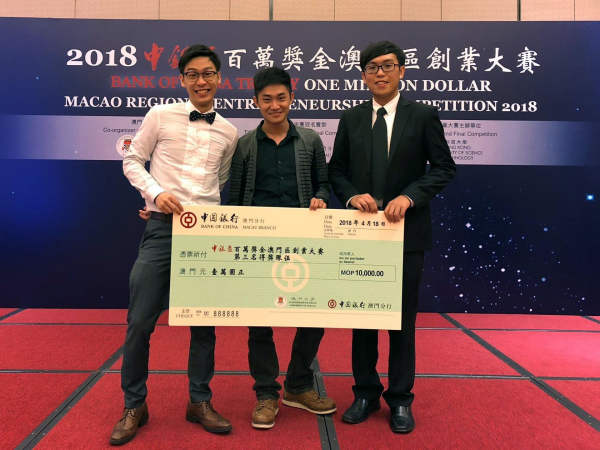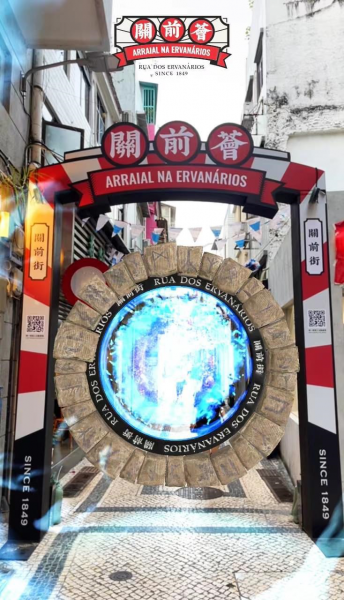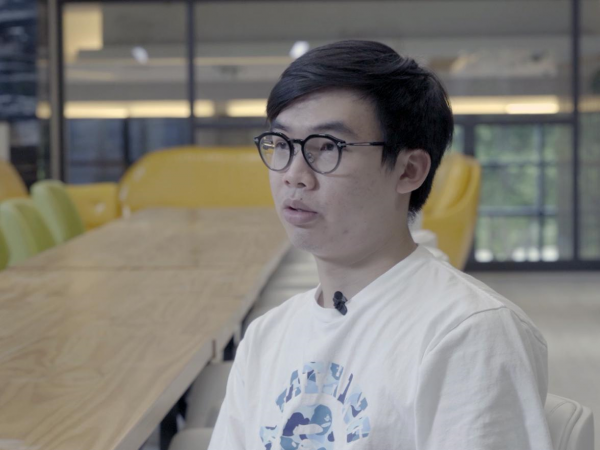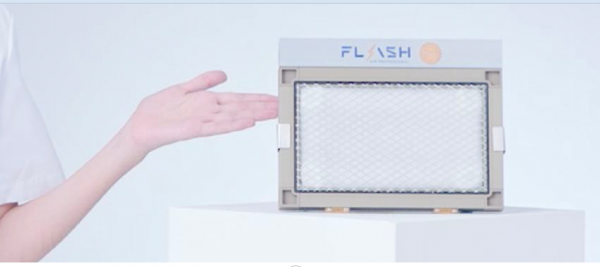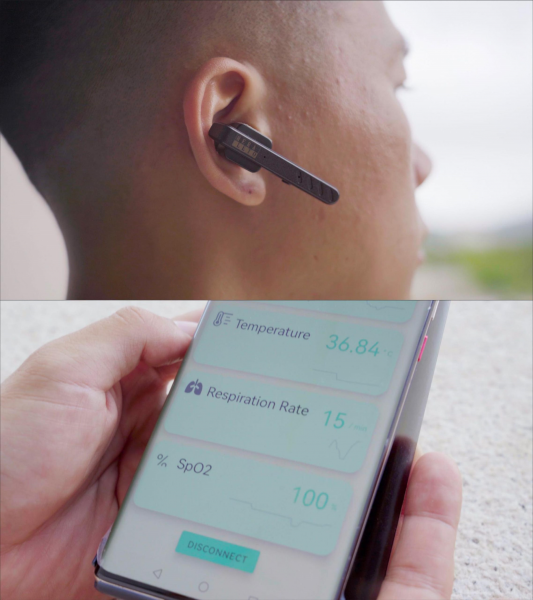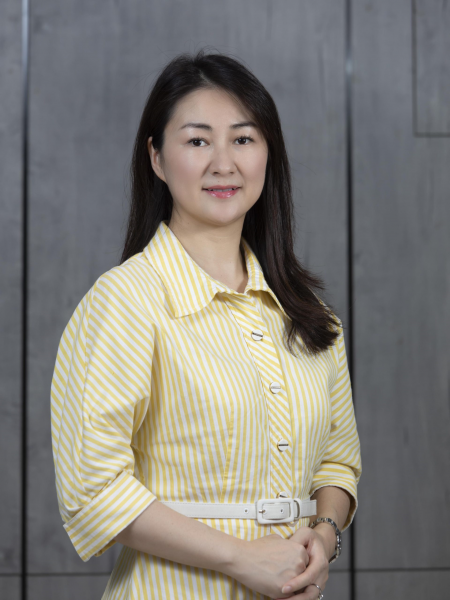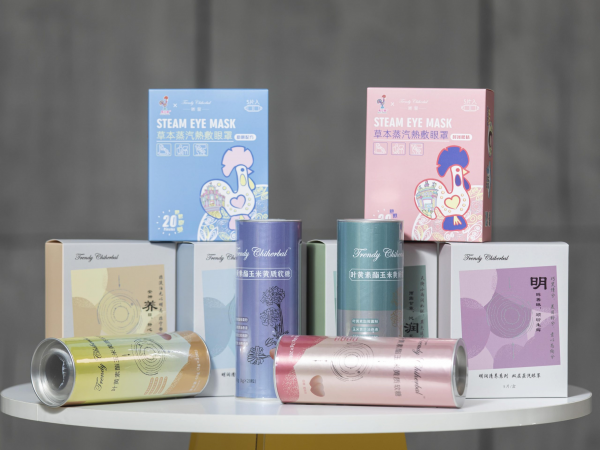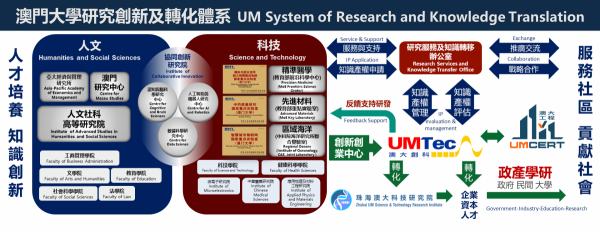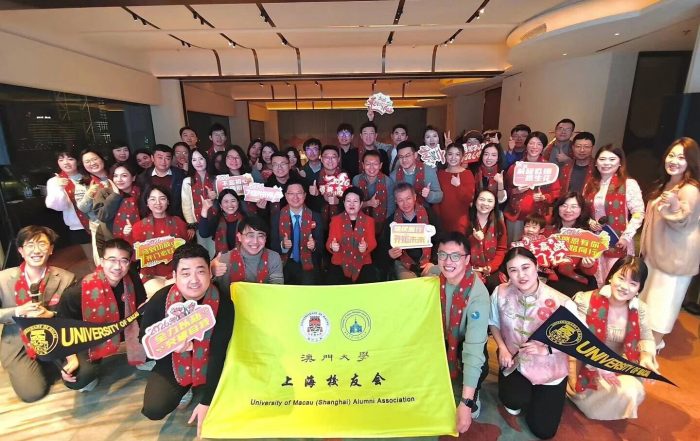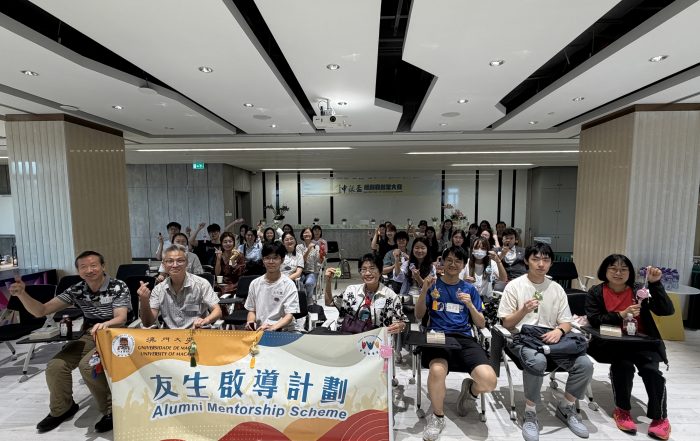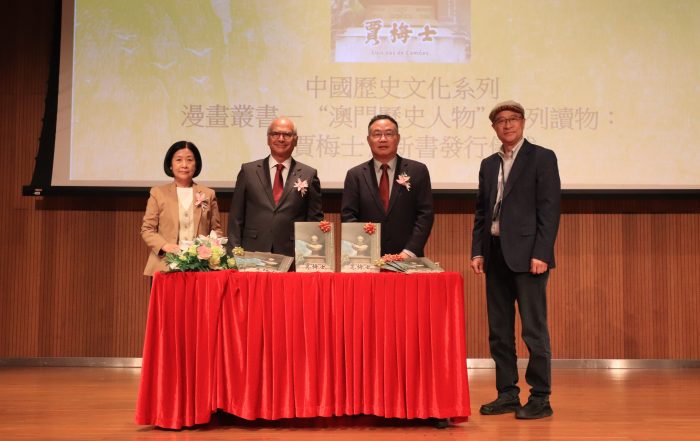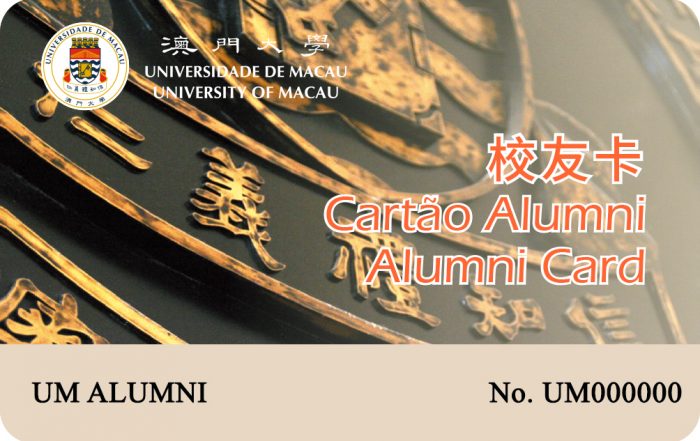As the implementation platform in the last stage of the University of Macau’s (UM) ‘5-in-1’ system for research innovation and results transfer, the Centre for Innovation and Entrepreneurship (CIE) of UM, which is also a national co-working space, is dedicated to creating an environment conducive to the development of innovative ideas, innovation skills, and entrepreneurship, where UM faculty members, students, and alumni can implement their creative ideas and then commercialise the results via the university’s industry-academia collaboration platforms. In this article, we will take you to the CIE located on the first floor of the UM Guest house to show you the centre’s various strategies to assist start-ups in their development and the projects incubated at the centre.
Support for start-up companies
Established in 2017, the CIE has incubated more than 40 start-ups over the past few years. In 2019, the centre obtained approval from the Ministry of Technology’s Torch High Technology Industry Development Center to serve as a national co-working space, which is testament to the ministry’s recognition of UM in industry-academia collaboration.
A graduate of psychology from UM in 2017, Kammy Cheong co-founded Barra Studio in his last year of college with two students in the Department of Computer and Information Science, Alex Leong and Felix Tong, whom he met through university activities. Barra Studio, one of the first entrepreneurial teams incubated at the CIE in 2018, specialising in 3D modelling and AR interactive design to provide creative AR marketing services for different companies and brands. Barra Studio recently undertook two community tourism projects co-organised by the Economic and Technological Development Bureau of Macao and local chambers of commerce. Titled ‘Arraial na Ervanários’, ‘Arraial em Coloane’, and ‘Arraial na Taipa’, the three projects combine elements of augmented reality (AR) technology and tourism and aim to revitalise the economies of three local neighbourhoods.
Empowering Start-ups to Grow in Markets
In addition to finding market opportunities, it is also very difficult for a start-up in Macao to obtain start-up capital, develop its business network, and hire the required professionals. As a founder of one of the first entrepreneurial teams incubated at the CIE, Cheong thanks UM for its continued support to and trust in his company: ‘The university has been a great support to our company. Through the CIE, we have acquired corporate knowledge in areas such as administration, accounting, taxation, law and finance, which has helped us run our business smoothly.’
Since its establishment, the CIE has served as a ‘runway’ for UM faculty members, students, and alumni to start their businesses. It has also given entrepreneurial teams access to a wide range of resources both within and outside the university, including investment and assistance from funds, companies, and investors, to help them raise business capital. In addition, the centre provides appropriate guidance for entrepreneurial teams, from business advice at the beginning to regular expert counselling, so that the teams can identify the strengths and problems of their projects early on and find solutions to adjust their future development direction. Thanks to the arrangement of the centre, Barra Studio participated in the Fifth Macau Industrial Products Show and signed a memorandum of understanding with Directel Macau Limited on collaboration in AR technology. Members of the team then began to get in touch with veteran entrepreneurs in the Greater Bay Area to expand its network and find angel investors, in order to start a financing programme.
To facilitate its development, Barra Studio has established branches in Hong Kong Cyberport and the Headquarter of Guangzhou Tianhe Hong Kong and Macau Youth Association. As the first youth start-up from Macao to be registered in the Guangdong-Macao In-depth Cooperation Zone in Hengqin, the company is expected to take advantage of the cooperation zone to expand its business.
Incubation Platform for Youth Innovation
The CIE has been actively fostering good interaction between UM and various parties, including the governments of Macao and mainland China, schools, enterprises, incubators, venture capital institutions, and business mentors. The results have been well recognised by the local community and the university has become an important incubation platform for youth innovation and entrepreneurship in Macao. Of the more than 40 start-ups incubated at the centre, about 20 of them have successfully transformed their results into products or services that are available now on the market. Because of this, these start-ups are able to support themselves and will continue to grow.
According to Prof Jerome Yen, head of the CIE, the centre is committed to supporting UM faculty members, students, and alumni in turning their innovative ideas with commercial potential into start-up projects, especially research results in the key areas of UM. Through offering incubation services for start-ups to transform results in key technology areas, the centre aims to strengthen research development and knowledge transfer at the university, in order to build an ecosystem for research results transfer as well as innovation and entrepreneurship, to form a mechanism for nurturing innovative professionals who would become entrepreneurs, and to promote the development of the high-tech industry of Macao.
Most of the start-up projects incubated at the CIE are research results of UM faculty members and students and they cover various disciplines, including medical technology, new materials, and information and communication technology. The projects include a smart cloud platform for early stroke detection, diagnosis, and rehabilitation from BrainLightning, air disinfectors from Zidian Technology, Chinese medicine-based health products from Trendy Chiherbal, an ambient cell-transportation system from Baylifetech Biotechnology, the next generation protein analytical products and services from TMASS Technology, a dressing for diabetic foot ulcers from Genetrump, a novel blood fluorescence monitor from Catydid Technology, and a Chinese-Portuguese translation platform based on natural language processing from UTran-i Technology.
Bridging Start-Ups to Industries
The CIE is committed to helping start-ups connect with industry to bring about economic benefits through technological innovation. Zidian Technology Co Ltd, a start-up company incubated at UM, has developed various technologies for air disinfection and purification. The company was founded in 2019 by Cen Bangjie, who was a student in the university’s Department of Psychology. With the support of an angel investment from the centre, Cen’s research team developed the Air-ClearV® air disinfection technology, which can provide ozone-free air disinfection services for workplaces around the clock and purify air pollutants such as PM2.5, viruses, bacteria, and nicotine. The technology has been certified as medical grade by five professional institutes in Macao, mainland China, and Switzerland and is suitable for use in operating theatres, isolation wards, consultation rooms, and corridors in hospitals where a sterile environment is required. This technology has received six national patents and has four international patents pending. Cen was elected an outstanding young entrepreneur by the Guangdong-HK Macao Bay Area Entrepreneurs Union and received a number of innovation accolades.
According to Cen, the Flash™ invisible air disinfector, an innovative project of the team in collaboration with the CIE, which is also seen as a contribution to the health care and disinfection sectors during the pandemic. ‘As a national co-working space, the CIE offers a wide range of business connections that can help us not only draw attention through innovation and entrepreneurship competitions as well as technology exhibitions, but also reach out to potential business partners and explore new markets,’ says Cen. ‘The guidance on entrepreneurship offered by the centre has enabled us to grow from a start-up team with limited knowledge of business operations to a tech company within one year.’
The Flash™ invisible air disinfector has been purchased and used by Kiang Wu Hospital and the Macao Science Center. The team has also set up a production line in Foshan. Cen will continue to lead the team to upgrade the manufacturing process and product materials to make the product more durable and resistant to fire. ‘We are grateful to UM for creating a good environment for us to start our business. The university not only provided start-up capital for our team, but also offered entrepreneurship training for us. This has helped us connect with the industries in Macao and the Greater Bay Area and integrate ourselves into the region,’ says Cen.
Displaying Start-ups Products
Using a series of smart devices for early stroke detection, diagnosis, rehabilitation, the BrainLightning smart cloud platform is an interdisciplinary project in brain science and biomedical engineering jointly conducted by scholars at UM, Chongqing University, and Jinan University. The project was supervised by Wan Feng, associate professor in UM’s Faculty of Science and Technology, and the process of research results transfer was carried out by Tan Liang, post-doctoral researcher at UM and founder of BrainLightning.
Stroke is characterised by its high incidence rate, high mortality rate, high disability rate, and high recurrence rate among its patients. As a neurosurgeon in mainland China, Dr Tan has personally witnessed many cases in which patients missed the golden time of 4.5 hours for stroke treatment. For this reason, he and his team have developed wireless Bluetooth earpieces that use advanced technology to measure brain temperature and oxygen levels at all times. The earphones upload the data to the cloud where it can be easily accessed by the patient’s family from a mobile app. The product has completed clinical trials with an accuracy rate up to 85 per cent. It has received six patents and nine utility models and is expected to be launched onto the market next year. As Macao is becoming an ageing society, our products are ready to provide 24-hour monitoring and appropriate diagnosis for the elderly in every household, providing an umbrella of protection for their health.’
In addition, Dr Tan and his team have developed a portable MRI stroke diagnostic device which weighs only 500kg, comes with a magnetic field strength of 50mT, and takes only seven minutes to generate a single sequence image. The device can be installed in ambulances for health professionals to conduct on-the-spot diagnoses for patients, so that if a stroke is detected, the patient can receive intravenous thrombolytic therapy immediately. According to Dr Tan, the entire test takes only five minutes so patients can receive treatment even before they arrive at the hospital. ‘While this device may only allow us to start treating the patient as much as ten minutes earlier than before, this would change the lives of over 100,000 patients every year,’ says Dr Tan. The product was presented at Smart China Expo in 2019 and preliminary results of the clinical trial showed a high diagnostic accuracy. The team plans to obtain 80 per cent of the market share of stroke diagnostic devices in ambulances in the Greater Bay Area within three years. In the future, under the guidance of Prof Wan Feng, Dr Tan will continue to work on stroke rehabilitation technology and advance his project to develop a new exoskeletal hand rehabilitation system using a new feedback technology based on brain-computer interfaces.
Since 2020, Dr Tan’s team has won 12 gold prizes in entrepreneurship competitions. He thanks the CIE for its continued support: ‘The centre has given us a stage to showcase our achievements and opportunities to meet angel investors and investment institutions from mainland China and abroad.
Commercialising Products via CIE
Trendy Chiherbal, a brand of Chinese medicine-based products founded by another entrepreneurial team incubated at the CIE, focuses on the development of health products combining traditional Chinese medicinal recipes and modern technology, with a vision to integrate the culture of Chinese medicine into people’s daily lives. After a rigorous selection process for the right medicinal recipes and clinical trials, the team has developed a series of eye care products, including a Chinese medicine-based steam eye mask and a candy to boost eye health, both of which have been launched onto the market in mainland China. Trendy Chiherbal was founded by Dr Ni Jingyun, who was mentored by Prof Wang Yitao in UM’s Institute of Chinese Medical Sciences during her PhD studies. Since graduation, she has been involved in the research and development (R&D) of Chinese medicine-based products.
Dr Ni founded her own company in Macao in 2021 and then established another company Aoyeas Health in the Traditional Chinese Medicine Science and Technology Industrial Park of Co-operation between Guangdong and Macao. With the support of the CIE, she has rapidly launched her eye care products onto the market. She also started a partnership with Macau Original to jointly launch an eye mask for improving sleep quality, and the mask has been available in pharmacies in Macao since the end of June 2022. ‘In the future, we will take some of our R&D result from Macao to Hengqin for transformation. It will be more convenient for us to communicate with experts and the market, and will give us more access to resources in the supply chain, so that we can make the most of our strengths in developing innovative products based on Chinese medicine,’ says Dr Ni.
Platform for Innovation Implementation
Since its establishment, CIE has been committed to supporting UM students, faculty and alumni to transform their innovative ideas with commercial potential into entrepreneurial projects, empowering them to generate economic effects and connecting people, technologies and industries. CIE also provides the start-ups to participate in entrepreneurial competitions, road shows, exhibitions, exchanges, cooperation and investment negotiations.
Launching research results onto the market is the ultimate step of research in universities. For this reason, UM has established the ‘5-in-1’ system for research innovation and results transfer to build high-level platforms for the five stages of industry-academia collaboration, namely innovation, service, management, cultivation, and implementation. While each of the five categories of platforms has an individual role to play, the system allows them to interact with each other. When different platforms are integrated into one, synergies can be created.‘As the implementation platform in the last stage of the university’s results transfer system, the CIE will continue to support the university in industry-academia collaboration by providing key support for and discovering outstanding entrepreneurial teams, nurturing young adults in Macao into high-calibre professionals that are innovative and proactive, and continuing to participate in the development of the Greater Bay Area,’ says Prof Yen. ‘We will work hard towards our goal of serving young adults, Macao, and the Greater Bay Area.’
Full version: My UM e-version


